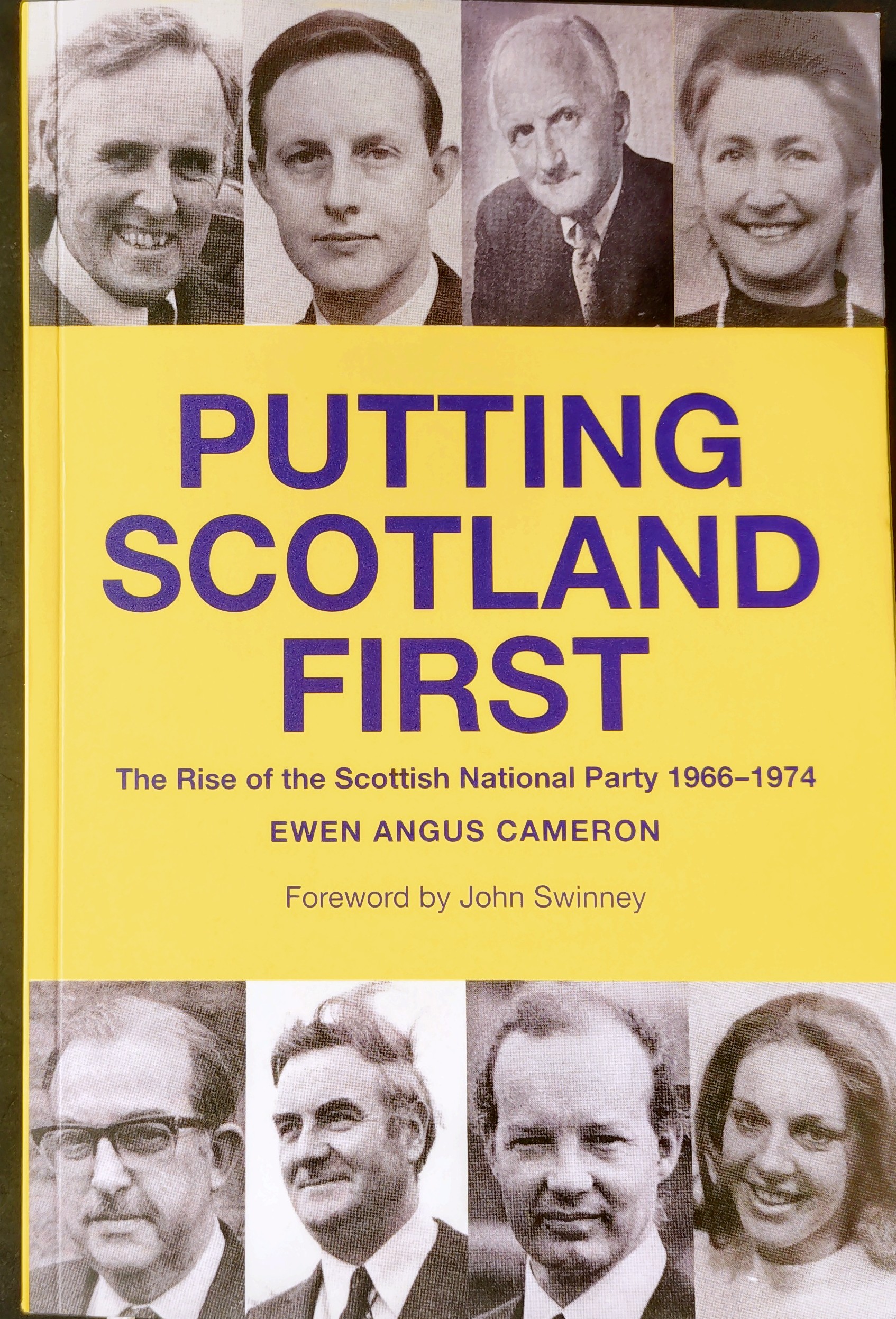Review by Andrew Murray Scott
Scots Independent, October 2025
Putting Scotland First:The Rise of the Scottish National Party 1966-1974 by Ewen Cameron, is the third of an ‘unofficial trilogy’ following Professor Richard Finlay’s Independent and Free, which covered the years 1918 to 1945 and Paula Somerville’s Through The Maelstrom, which continued the narrative from 1945 to 1967. Filling an identified gap in the party’s bibliography it carries a foreword by John Swinney, who observes that a detailed book on the period is ‘long overdue’. The book began as post-graduate research in 2014 at Strathclyde University with Professor Finlay as Cameron’s tutor.
.
Cameron’s book starts with a major advantage. Before even a word of it had been written, the author had performed valuable service by seeking out previously untapped material. Aided by Billy Wolfe’s son David, he uncovered a huge collection of papers by the former party leader which in 2017 became the William Wolfe Collection in the National Library of Scotland. Then in 2018 he learned of sixteen tin boxes in a factory in Larbert belonging to former party Executive Vice-Chairman Douglas Drysdale, now also in the care of the NLS. His conversations with key National Organiser Ian Macdonald prompted the rediscovery of four boxes in McDonald’s attic which were similarly donated. Then five folders of Tom McAlpine’s were donated by Isobel Lindsay to the NLS, and Cameron also had a hand in the vast archive of Hamish McQueen being acquired by the Scottish Political Archive. He is to be commended for assisting with this preservation work and of course has used it well to provide new insights into the period, along with extensive interviews conducted with key figures. He also acknowledges lesser-known election agents and local activists.
It is, as he puts it, ‘a story of a self-assembling mass movement’ in the ten-year period of its greatest growth which saw ‘the largest shift of voters in Scotland in the second half of the twentieth century’. He links personae and events in five immensely readable yet detailed chapters and has been able to correct misconceptions. For example, in relation to dramatic increases in membership, where it had previously been claimed documentation either did not exist or had been destroyed, Cameron discovered useful data in the Wolfe papers proving a decline in membership by 1971.
In the final chapter, ‘Themes From The Past in The Present’ Cameron steps beyond the 1966-74 period to examine what impact the events have had in the context of the present day, exploring how perceptions of the route to Independence have altered. He concludes that ‘the prioritising of Scottish interests over British… of a significant portion of the electorate’ is the legacy of 1974. Scotland started to matter then and the change was permanent. This book will come to be seen as the most definitive account yet produced not just of the rise of the SNP but of how the nation began to change in the light of it – and why. Ewen Cameron will be at the Scots Independent stall at SNP Conference in Aberdeen at lunchtime on Saturday 11th October to sign copies of the book.
